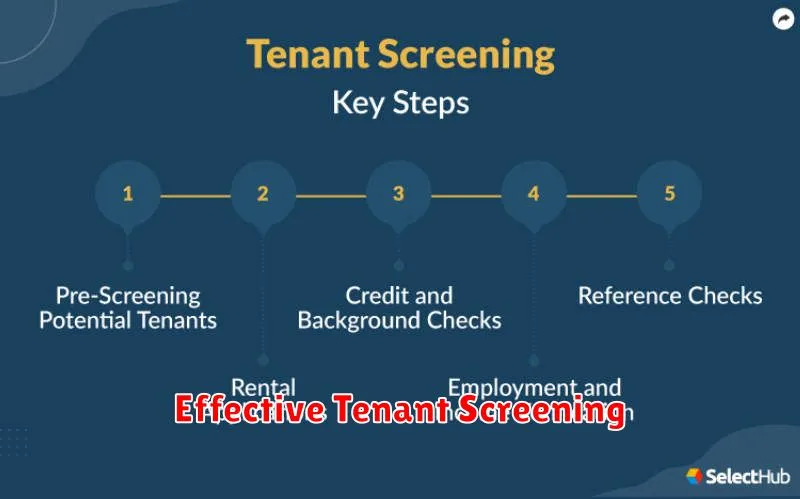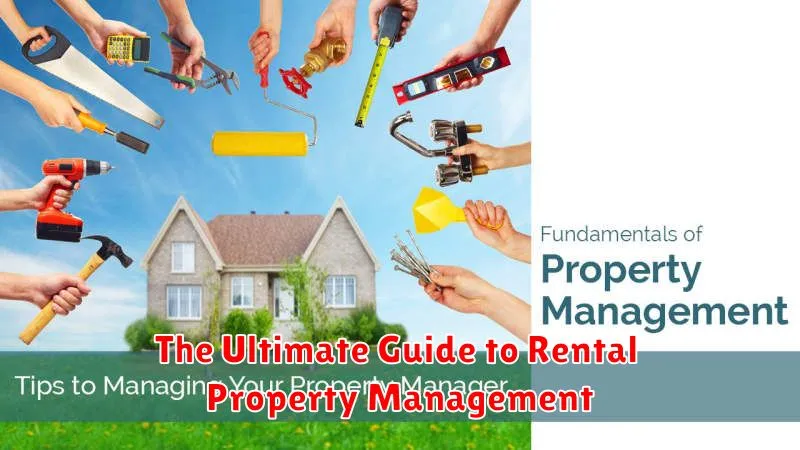Managing rental properties effectively is crucial for maximizing returns and minimizing stress. This Ultimate Guide to Rental Property Management provides comprehensive insights and practical strategies for every aspect of the process, from tenant screening and lease agreements to property maintenance and legal compliance. Whether you are a seasoned landlord or a new investor, this guide offers invaluable advice to navigate the complexities of rental management and achieve success in the competitive real estate market. Understanding the intricacies of rental property management, encompassing key areas like rent collection, property inspections, and tenant communication, is essential for long-term profitability and peace of mind.
This guide delves into the essential elements of successful rental property management, covering topics such as marketing your property, handling security deposits, addressing tenant issues, and understanding your legal responsibilities. By implementing the best practices outlined here, you can optimize your rental income, minimize vacancies, and foster positive tenant relationships. Learn how to effectively manage your rental properties and achieve your investment goals with this comprehensive resource, whether you’re managing a single unit or a large portfolio. From navigating eviction processes to understanding fair housing laws, this guide equips you with the knowledge to confidently manage your rental property investments.
Understanding the Role of Property Managers
Property managers act as a liaison between property owners and tenants, handling the day-to-day operations of rental properties. They play a crucial role in maximizing the return on investment for property owners while ensuring tenant satisfaction.
Their key responsibilities encompass various tasks, including marketing vacancies, screening tenants, collecting rent, and managing maintenance and repairs. This allows property owners to maintain a hands-off approach while their investment is professionally managed.
By effectively handling these tasks, property managers contribute to the smooth running of the property, minimizing vacancy periods, and maintaining the property’s value.
Effective Tenant Screening

Thorough tenant screening is crucial for protecting your investment and ensuring a positive rental experience. A comprehensive screening process helps minimize risks by identifying potentially problematic tenants before they move in.
Key aspects of effective screening include:
- Credit Checks: Review credit reports to assess financial responsibility and payment history.
- Background Checks: Conduct criminal background checks and verify prior evictions.
- Rental History: Contact previous landlords to gauge past rental behavior and payment patterns.
- Income Verification: Ensure prospective tenants have sufficient income to comfortably afford the rent.
- Application Review: Carefully review application forms for inconsistencies or red flags.
By consistently implementing these practices, you can significantly reduce the likelihood of future issues, such as late payments, property damage, and legal disputes.
Maintenance and Repairs Management
Effective maintenance and repairs management is crucial for successful rental property management. It ensures tenant satisfaction, preserves property value, and minimizes long-term costs.
Proactive Maintenance: Implement a regular maintenance schedule to address potential issues before they escalate. This includes routine inspections, servicing of appliances, and landscaping.
Reactive Maintenance: Establish a clear process for handling tenant repair requests. This involves prompt communication, efficient repairs, and thorough documentation. Prioritize emergency repairs to ensure tenant safety and minimize property damage.
Navigating Lease Agreements
Lease agreements are legally binding contracts that outline the terms of a tenancy between a landlord and a tenant. A well-drafted lease is crucial for protecting the interests of both parties. It should clearly define key aspects of the rental arrangement.
Essential components of a lease agreement typically include the names of the landlord and tenant, the property address, the lease term, the rental amount, the security deposit amount, and the responsibilities of each party.
Additionally, the lease agreement should specify the terms of renewal or termination, rules regarding pets and other occupants, and any restrictions on the use of the property. It’s important to review and understand all clauses within the lease agreement before signing.
Handling Tenant Issues Professionally
Effective communication is key to resolving tenant issues professionally. Promptly acknowledge and address their concerns. Maintain a respectful and empathetic demeanor, even in challenging situations.
Establish clear communication channels. Provide tenants with multiple ways to reach you, such as phone, email, or an online portal. Document all communication, including dates, times, and the nature of the issue.
Follow a consistent procedure for handling complaints. This ensures fair treatment and prevents misunderstandings. Prioritize urgent repairs that impact habitability, such as plumbing or heating issues.
Collecting Rent and Managing Finances
Efficient rent collection is crucial for successful property management. Establish a clear rent payment schedule and preferred payment methods. Online payment platforms offer convenience and automated record-keeping.
Late fees should be clearly outlined in the lease agreement. Consistent enforcement encourages timely payments. Consider offering incentives for early rent payments to motivate tenants.
Maintaining accurate financial records is essential. Track income and expenses meticulously. Categorize expenses for tax purposes and to analyze property performance. Budgeting and forecasting are key to long-term financial health.
Keeping Up with Market Trends
Staying informed about market trends is crucial for successful rental property management. Understanding current rental rates, vacancy rates, and property values allows you to make informed decisions about pricing, marketing, and property improvements.
Regularly research your local market. Analyze competing properties and identify emerging trends. This knowledge will help you optimize your rental income and attract high-quality tenants.
Consider using market analysis tools and resources to track key indicators. Staying ahead of the curve ensures your properties remain competitive and profitable.
Ensuring Legal Compliance
Navigating the legal landscape of rental property management is crucial for success. Failing to comply with federal, state, and local laws can lead to costly penalties and legal battles.
Key areas of legal compliance include fair housing laws, which prohibit discrimination against protected classes. Lease agreements must adhere to legal standards and clearly outline tenant and landlord responsibilities. Security deposit management, including proper handling and return, is also highly regulated.
Regularly review and update your practices to remain compliant with evolving regulations. Consulting with a legal professional specializing in real estate law can provide invaluable guidance and help you avoid potential pitfalls.

